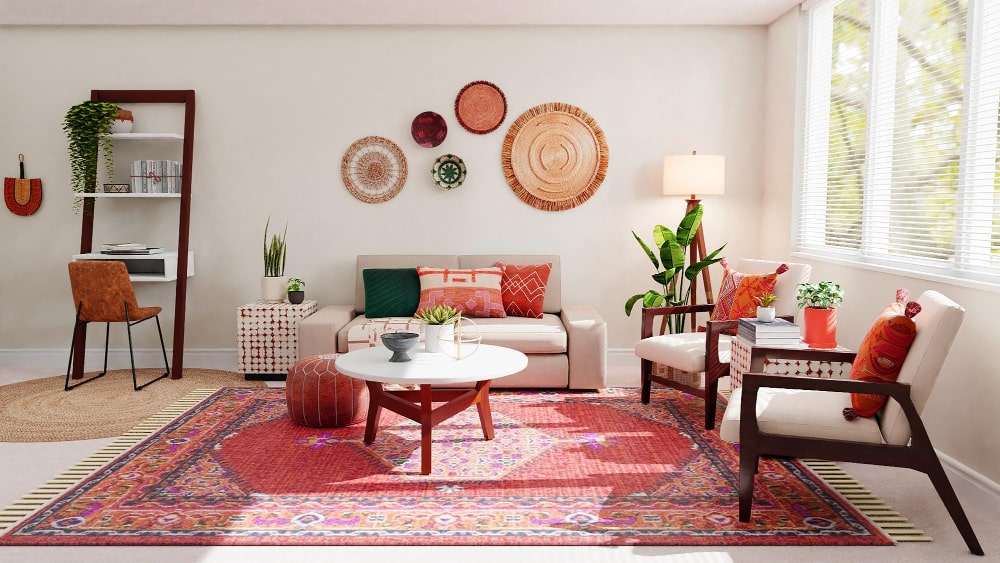The Ultimate Guide to Renting Furniture for Your Home
Furniture rental is the process of leasing household furnishings—such as beds, sofas, dining tables, and appliances—for a specific period, typically on a monthly basis. This model offers a flexible, cost-effective alternative to purchasing furniture outright. Instead of committing to a long-term investment, individuals can rent high-quality items based on their needs and duration of stay.
The concept of renting furniture has existed for decades, especially in the corporate and hospitality sectors. However, in recent years, it has gained popularity among urban dwellers, students, digital nomads, and families in transition. With growing housing mobility and lifestyle shifts, the demand for easy and affordable furnishing options has expanded significantly.

Why Furniture Rental Matters Today
In today’s fast-paced and mobile lifestyle, furniture rental solves multiple problems:
-
Affordability: Buying new furniture can be expensive. Rental plans reduce upfront costs while allowing access to premium furniture.
-
Flexibility: Ideal for people who frequently relocate—such as job transferees, expats, or students.
-
Convenience: Rental companies often handle delivery, assembly, maintenance, and pickup.
-
Sustainability: Encourages reuse, reduces waste, and promotes a circular economy in the furniture industry.
This service is particularly useful for:
-
Young professionals in temporary housing
-
Families transitioning between homes
-
Remote workers relocating for short-term projects
-
College students living off-campus
-
Individuals in furnished rental apartments looking to personalize their space
Recent Trends and Industry Updates (2024–2025)
The global furniture rental market is projected to reach $11.5 billion by 2030, according to a 2024 report by Market Research Future. Several recent developments have influenced this growth:
| Year | Update | Description |
|---|---|---|
| 2024 | Increased urban mobility | Post-pandemic workforce migration and hybrid work led to a rise in short-term furniture rentals. |
| 2024 | Subscription models | Companies introduced flexible subscription-based rental packages, allowing users to swap items monthly. |
| 2025 | Eco-conscious demand | Demand grew for sustainable and refurbished furniture. Rental firms began showcasing carbon-neutral collections. |
| 2025 | Integration with real estate platforms | Furniture rental options are now integrated with digital real estate services, simplifying the moving process. |
Legal and Policy Landscape
Furniture rental is generally regulated under consumer leasing laws, contractual agreements, and goods-and-services taxation rules. Here’s a breakdown of key considerations:
1. Rental Agreement Clauses
Rental contracts must clearly outline:
-
Duration of lease
-
Monthly rental charges
-
Responsibilities for damage or repairs
-
Conditions for termination or renewal
-
Security deposits and refund policies
2. Tax Implications
In countries like India and the United States, furniture rental is subject to Goods and Services Tax (GST) or sales tax, often included in the monthly rental fee.
3. Consumer Protection
Under various Consumer Protection Acts, renters are entitled to:
-
Receive goods in usable, damage-free condition
-
Get replacements in case of defective products
-
Refunds or service guarantees as per contract
4. Local Regulations
In some cities, rental services must adhere to local municipal disposal policies, especially when dealing with old or damaged furniture returns.
Tip: Always read the full rental agreement and verify the company's license or registration if you’re renting through a private provider.
Useful Tools, Platforms, and Resources
Whether you're renting for a few weeks or several months, these tools and platforms can simplify the experience:
| Tool/Service | Use Case |
|---|---|
| Furlenco (India) | Monthly rentals for bedroom, living room, and study furniture |
| Feather (USA) | Sustainable rentals and furniture swap options |
| Rentomojo (India) | Full home furnishing with appliance bundles |
| CORT (USA) | Corporate and home furniture rental packages |
| Wayfair Room Planner | Visualizes furniture layout before renting |
| MagicPlan App | Helps measure room space with AR technology |
| Furniture Rental Calculators | Compares rental vs buying cost based on term length |
Templates to Consider:
-
Rental Inventory Checklist
-
Rental Agreement Template
-
Damage Liability Checklist
Frequently Asked Questions
Q1. Is it cheaper to rent or buy furniture in the long term?
A: For short-term needs (less than 2 years), renting is usually more economical. However, for long-term stays, purchasing may be more cost-effective in the end. Use a rental vs. buying calculator to analyze your specific case.
Q2. What happens if I damage a rented item?
A: Most rental companies cover minor wear and tear. However, major damage or misuse could lead to repair charges or loss of deposit. Always check the company's damage policy and consider optional damage protection plans.
Q3. Can I rent furniture for just one room?
A: Yes, many platforms allow itemized rentals. You can rent a single bed, work desk, or couch, without committing to full home packages.
Q4. Do furniture rental companies offer customization?
A: Some premium providers offer color and fabric options or modular pieces that you can mix and match. However, full customization (like built-to-order furniture) is generally not part of standard rental offerings.
Q5. Is rented furniture hygienic and safe?
A: Reputed rental companies follow strict quality checks and sanitation processes before delivering reused furniture. Always confirm their cleaning and inspection protocols before renting.
Conclusion
Furniture rental has evolved into a smart, sustainable, and flexible furnishing solution for modern living. Whether you’re relocating for work, setting up a temporary home, or simply exploring minimalist living, renting furniture can help you save time, reduce waste, and enjoy comfort without the long-term commitment.
As with any service, doing your research, understanding your rental agreement, and comparing options will ensure you get the best value for your needs. With growing consumer awareness and innovation in the industry, furniture rental is no longer just a temporary fix—it’s a lifestyle choice.